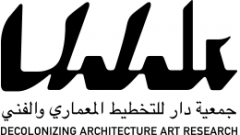WORKSHOP – The Architecture of Refugees: The Question of Ethics at the MIT
April 27th, 2017
The Aga Khan Program for Islamic Architecture at Massachusetts Institute of Technology, School of Architecture + Planning 77 Massachusetts Avenue – Cambridge, MA 02139 (room 4-231)
Significant transformations in the world’s political landscape are signaling the emergence of a new world order that undermines the certitudes established at the end of World War II. At the core of such discussions, the concept of human rights is significantly challenged, calling for a discussion at the core of ethics for the revisions of the principles and mechanisms of intervention. In reaction to these new transformations some have called for a World Parliament representing the people and not governments to replace the UN General Assembly. The workshop addresses the agency of architecture and design in a context where the disrespect of human rights is aggravated by the incapacity of global institutions to react efficiently. What are the ethical questions regarding the architecture of refugees? What timescales, short or long terms, represent a priority for architecture and through which agenda – refugee relief, historical preservation, camp upgrades and daily life, or rebuilding and re- settlement? What is the role of design in front of the degradation and destruction of cultural artifacts? How can design be channeled towards peace building objectives and possible resettlement projects? What are the material, technological, systemic responses to address emergency needs in the context of refugee camps?
More info
akpia.mit.edu/symprefugeeprogram.pdf
SUMMIT – What is an Artistic Practice of Human Rights?
April 29th, 2017
Logan Center for the Arts, University of Chicago, 915 E. 60th St., Chicago, IL
“What is an Artistic Practice of Human Rights?” is a multi-day summit hosted by the University of Chicago and composed of a group of distinguished international artists who will propose, examine, and challenge the ways in which creative cultural resistance can broaden our collective understanding of human rights.
Day one features an immersive day of artist presentations to include performances, screenings, conversations, and lectures. Each artist has been provided with a 45-minute slot during which they will either deliver a presentation about their particular practice and the ways in which it illuminates human rights issues, or present a work of art created specifically for the summit.
More info
graycenter.uchicago.edu/humanrights
